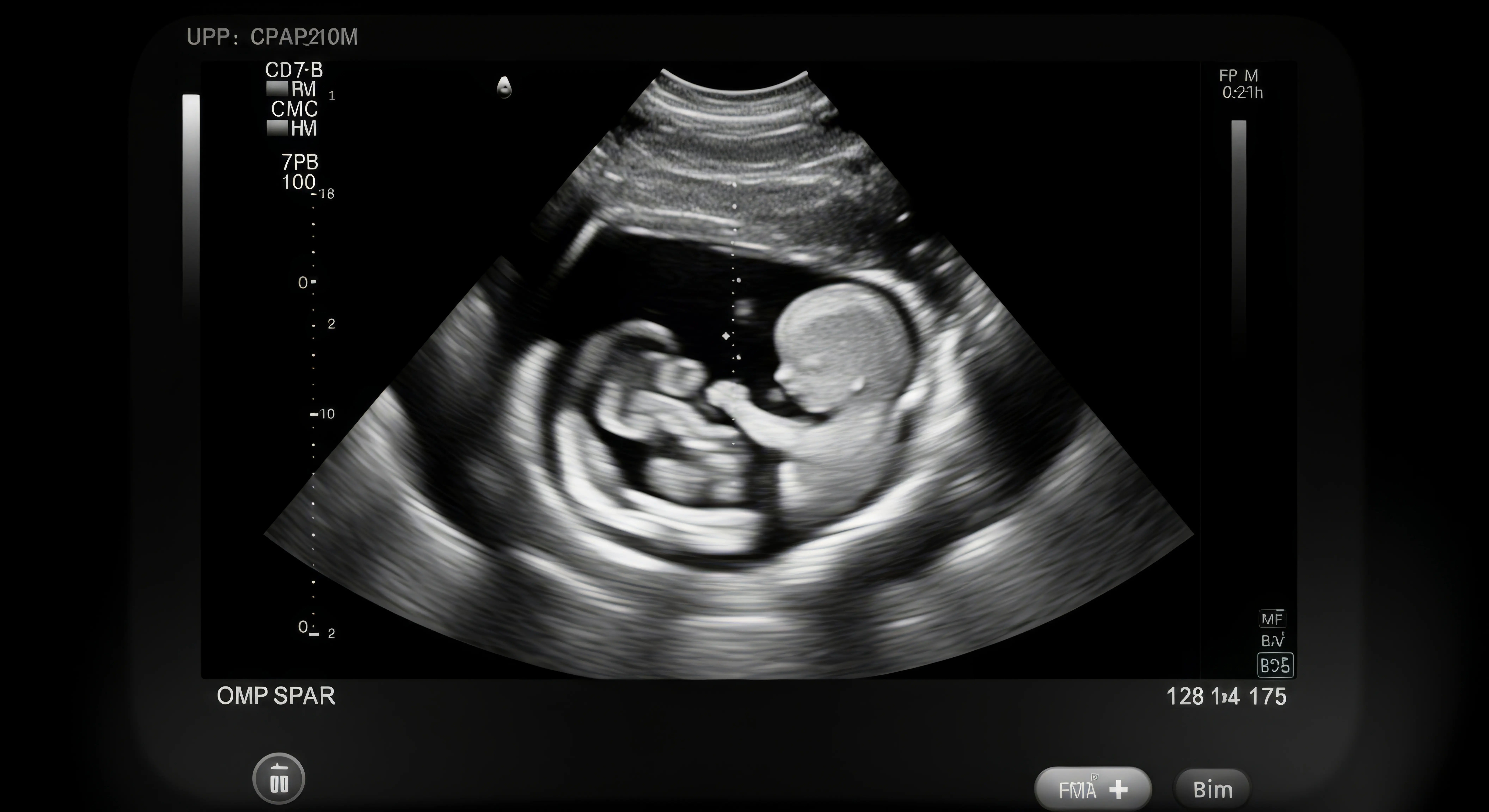Guide to What Expect When You Are Expecting
Your complete week-by-week guide to pregnancy. Learn what to expect, essential health tips, baby development, and prepare for birth.

Written by Dr. Rohinipriyanka Pondugula
Reviewed by Dr. Mohammed Kamran MBBS, FIDM
Last updated on 13th Jan, 2026

Introduction
Congratulations! Seeing a positive pregnancy test can unleash a whirlwind of emotions—joy, excitement, and perhaps a touch of nervousness about the incredible journey ahead. "What to expect when you're expecting" is more than just a famous book title; it's the central question on every expectant parent's mind. This comprehensive guide is designed to walk you through each stage of pregnancy, from the first early symptoms to preparing for life with your newborn. We'll cover the physical changes, emotional shifts, and key milestones you'll encounter over these transformative nine months, offering practical advice and insights to help you feel confident and prepared every step of the way.
The First Trimester (Weeks 1-12): Early Changes and Foundations
The first trimester is a period of rapid, foundational development for your baby and significant adjustment for your body, even if it's not visibly obvious yet.
Early Pregnancy Symptoms and Your Body
During these initial weeks, hormonal changes, primarily surges in estrogen and progesterone, can lead to a host of early pregnancy symptoms. The most well-known is morning sickness (which can, ironically, strike at any time of day), often accompanied by fatigue, tender breasts, and frequent urination. It's important to remember that every pregnancy is unique. Some women experience severe symptoms, while others have very few. If morning sickness is making it difficult to keep food down, try eating small, frequent meals and snacking on ginger biscuits. If symptoms become unmanageable, consulting a doctor online with Apollo24|7 can provide quick, personalized advice from the comfort of your home.
Your Baby's Development in the First Trimester
The fetal development in the first trimester is nothing short of miraculous. What starts as a tiny cluster of cells rapidly transforms. By the end of week 4, the neural tube (which becomes the brain and spinal cord) is forming. By week 8, your baby graduates from an embryo to a fetus, with tiny paddles forming for arms and legs. By the end of the first trimester, all major organs have begun to develop, and the baby has a recognizable human shape, complete with fingers and toes.
Essential First-Trimester Checklist: Doctor Visits and Tests
Your first prenatal care appointment is crucial. It typically involves confirming the pregnancy, estimating your due date, and running baseline health tests. Apollo24|7 offers a convenient home collection for tests like blood work to check your blood type, iron levels, and immunity to certain diseases. This is also the time to start taking prenatal vitamins, especially folic acid, which is vital for preventing neural tube defects.
Health Topic Carousel:
Doctor Speciality: General Physician
Text: Consult Top Specialists
The Second Trimester (Weeks 13-26): The "Honeymoon Period"
Many women find the second trimester to be the most enjoyable. Energy levels often return, nausea typically subsides, and the reality of pregnancy becomes beautifully visible.
Glowing Skin, Growing Bump: Physical Changes
This trimester is when you'll likely start "showing." Your uterus expands to make room for your growing baby, leading to a prominent baby bump. You might also experience the famed "pregnancy glow" due to increased blood flow. However, you may also notice new changes like stretch marks, a dark line on your abdomen (linea nigra), and some aches in your lower back as your body adjusts. A healthy diet for pregnant women, rich in vitamins and minerals, can support your skin's elasticity and overall health.
Milestones in Fetal Development: Feeling the First Kicks
One of the most magical moments of pregnancy happens in the second trimester: feeling your baby move. Often described as "flutters" or "butterflies," these first baby kicks (known as quickening) usually occur between weeks 18 and 22 for first-time moms. Your baby is also developing senses; they can hear your voice and heartbeat. By around week 20, an ultrasound may even reveal the baby's sex, if you choose to find out.
Navigating the Anatomy Scan and Genetic Testing
Around weeks 18-20, you'll have a detailed ultrasound called the anatomy scan. This is a thorough check of your baby’s physical development, examining the brain, heart, spine, and other organs. This scan can also provide more information for any follow-up genetic testing you and your doctor may have discussed earlier.
The Third Trimester (Weeks 27-40+): The Final Countdown
The home stretch! The third trimester is about final growth and preparation for birth. As your baby gets bigger, you may feel more physically uncomfortable, but the excitement of meeting your little one grows every day.
Preparing for Labor: Physical Discomfort and Signs
Common symptoms in this stage include shortness of breath, heartburn, swelling in the ankles and feet, and trouble sleeping. You might also experience Braxton Hicks contractions, which are "practice" contractions that prepare your uterus for labor. It's essential to learn the difference between these and true signs of labor approaching, such as your water breaking or consistent, intensifying contractions. Discussing these signs with your doctor is a key part of your final appointments.
Your Baby's Final Growth Spurt
During these last few months, your baby is primarily gaining weight and maturing their organs, especially the lungs. The brain is also developing rapidly. By around 37 weeks, your baby is considered "full-term" and could arrive safely at any time.
Creating Your Birth Plan and Packing Your Hospital Bag
Now is the time for practical preparations. A birth plan is a document that outlines your preferences for labor and delivery (e.g., pain management options, who will be present). While it's important to remain flexible, having a plan facilitates communication with your healthcare team. Pack your hospital bag with essentials for yourself, your birth partner, and your newborn by week 36, so you’re ready to go.
Beyond Birth: Planning for the Fourth Trimester
The journey doesn't end at delivery. The first three months postpartum, often called the "fourth trimester," are a critical period of recovery and adjustment for both you and your baby.
Postpartum Recovery: What to Expect for Your Body
Your body needs time to heal. You will experience vaginal bleeding (lochia), afterpains as your uterus shrinks, and, if you're breastfeeding, you'll navigate the learning curve of lactation. Postpartum recovery tips include resting as much as possible, accepting help from friends and family, and focusing on nourishing foods. If you have concerns about your recovery, such as heavy bleeding or signs of infection, don't hesitate to seek medical attention.
Mental Health and the Baby Blues vs. Postpartum Depression
It's normal to experience mood swings, known as the "baby blues," due to hormonal shifts and exhaustion. However, if feelings of sadness, anxiety, or hopelessness are intense and persist beyond two weeks, it could be a sign of postpartum depression. This is a serious medical condition. If these feelings persist, consult a doctor online with Apollo24|7 for further evaluation and support. Seeking help is a sign of strength for you and your family.
Conclusion: Your Unique Pregnancy Path
The journey of pregnancy is one of the most profound experiences life offers. It's a time of immense physical change, emotional growth, and eager anticipation. While this guide provides a roadmap for what to expect when you're expecting, remember that your path will be uniquely yours. Embrace the surprises, trust your instincts, and lean on your support system. By staying informed and connected with your healthcare team, you can navigate each trimester with confidence, leading up to the incredible moment you welcome your new baby into the world.
Health Topic Carousel:
Doctor Speciality: General Physician
Text: Consult Top Specialists
Frequently Asked Questions (FAQs)
1. What are the very first signs of pregnancy?
A. The earliest signs often include a missed period, tender or swollen breasts, fatigue, and nausea (morning sickness). Some women may also experience implantation bleeding or cramping.
2. What foods should I avoid during pregnancy?
A. It's best to avoid unpasteurized dairy, raw or undercooked meat and eggs, high-mercury fish (like shark and swordfish), and deli meats unless heated thoroughly to reduce the risk of foodborne illnesses.
3. Are exercises safe during pregnancy?
A. Yes, in most cases, exercise is highly beneficial. Low-impact activities like walking, swimming, and prenatal yoga are excellent. Always get clearance from your doctor before starting or continuing any exercise regimen.
4. How can I tell the difference between Braxton Hicks and real labor contractions?
A. Braxton Hicks are irregular, don't get closer together, and often stop with movement or hydration. Real labor contractions become longer, stronger, and closer together over time and don't ease up.
5. When should I call my doctor during pregnancy?
A. Call immediately for any heavy bleeding, severe abdominal pain, a sudden severe headache, blurred vision, a significant decrease in fetal movement, or if your water breaks.
Consult Top Specialists for Personalised Tips

Dr. Vivek D
General Physician
4 Years • MBBS
Bengaluru
PRESTIGE SHANTHINIKETAN - SOCIETY CLINIC, Bengaluru

Dr. Dhanraj K
General Physician/ Internal Medicine Specialist
25 Years • MBBS, MD Internal Medicine - Osmania Medical College, Hyderabad
Hyderabad
Apollo Hospitals Jubilee Hills, Hyderabad
(425+ Patients)

Dr Syed Mateen Pasha
General Physician
2 Years • MBBS
Bengaluru
PRESTIGE SHANTHINIKETAN - SOCIETY CLINIC, Bengaluru

Dr. Anand Ravi
General Physician
2 Years • MBBS
Bengaluru
PRESTIGE SHANTHINIKETAN - SOCIETY CLINIC, Bengaluru

Dr. Ajay K Sinha
General Physician/ Internal Medicine Specialist
30 Years • MD, Internal Medicine
Delhi
Apollo Hospitals Indraprastha, Delhi
(200+ Patients)
Consult Top Specialists

Dr. Vivek D
General Physician
4 Years • MBBS
Bengaluru
PRESTIGE SHANTHINIKETAN - SOCIETY CLINIC, Bengaluru

Dr. Dhanraj K
General Physician/ Internal Medicine Specialist
25 Years • MBBS, MD Internal Medicine - Osmania Medical College, Hyderabad
Hyderabad
Apollo Hospitals Jubilee Hills, Hyderabad
(425+ Patients)

Dr Syed Mateen Pasha
General Physician
2 Years • MBBS
Bengaluru
PRESTIGE SHANTHINIKETAN - SOCIETY CLINIC, Bengaluru

Dr. Anand Ravi
General Physician
2 Years • MBBS
Bengaluru
PRESTIGE SHANTHINIKETAN - SOCIETY CLINIC, Bengaluru

Dr. Ajay K Sinha
General Physician/ Internal Medicine Specialist
30 Years • MD, Internal Medicine
Delhi
Apollo Hospitals Indraprastha, Delhi
(200+ Patients)




